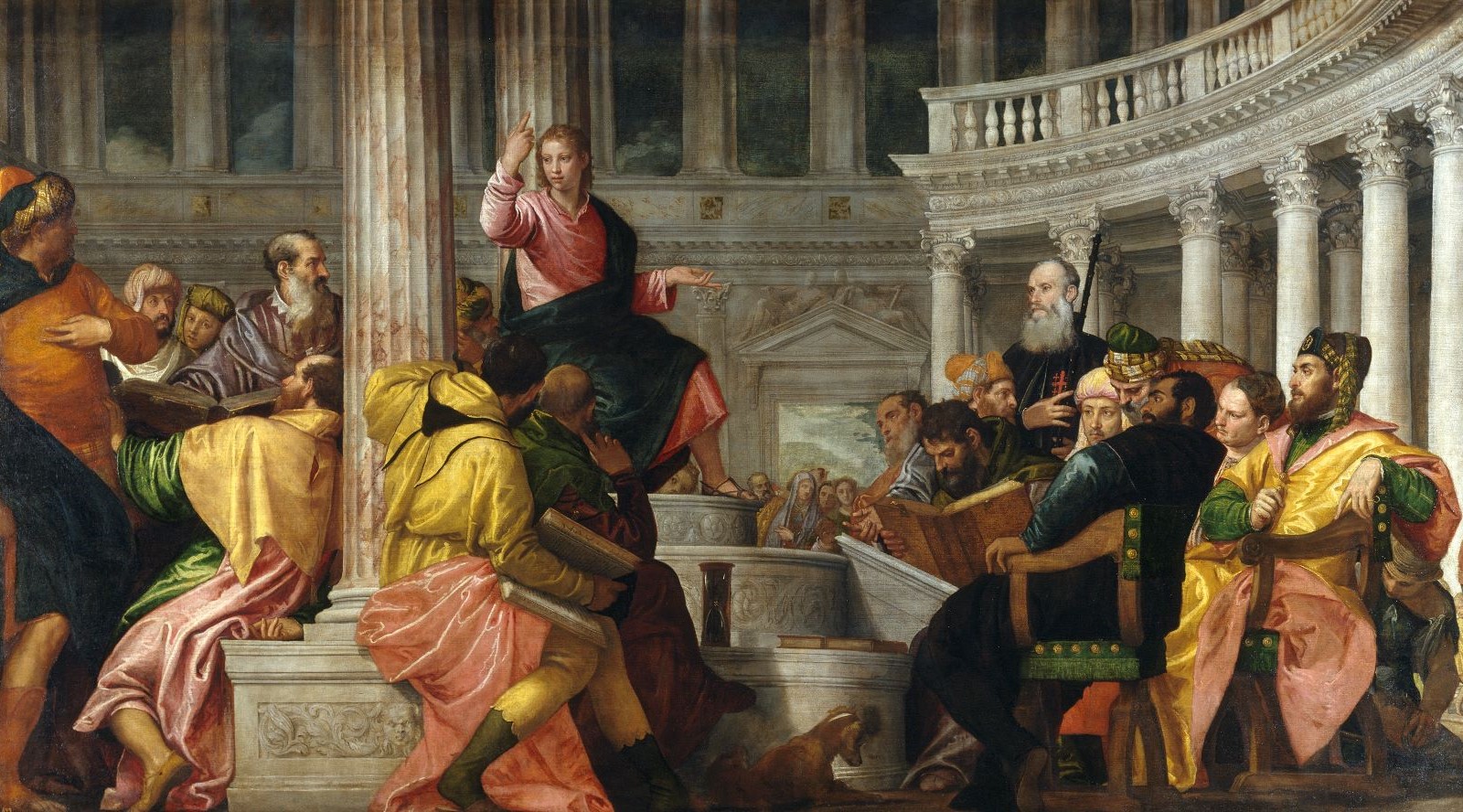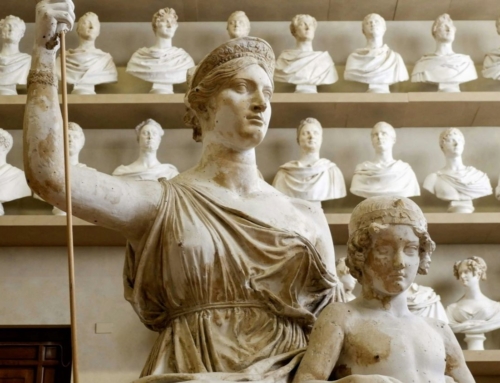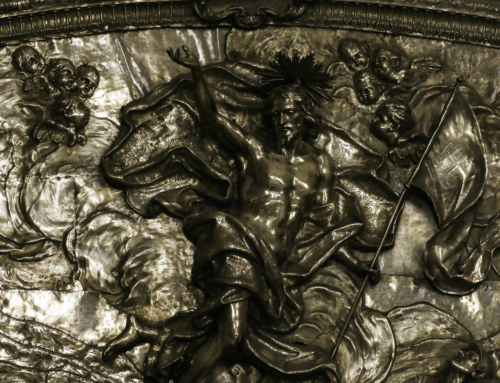Today, December 17th, is famously the first day of the O Antiphons. These seven antiphons are short versicles that are sung at Mass and before the Magnificat at vespers each day from now until Christmas Eve. They acclaim Christ under particular titles with the joyful expectation proper to the Advent season. They are beautifully and appropriately sung in the liturgy, the privileged place of encounter with Jesus—the Wisdom of God. In the liturgy, we learn from the Lord of Wisdom how to live the life of blessedness and so attain eternal happiness.
The O Antiphons also appear in the popular hymn “O Come, O Come, Emmanuel” which has its origins in the 12th century. For today’s Christological title, “O Wisdom,” the hymn reads:
O come, Thou Wisdom from on high,
who ord’rest all things mightily;
To us the path of knowledge show,
And teach us in her ways to go.
Rejoice! Rejoice! Emmanuel
Shall come to thee, O Israel.
Saint Thomas Aquinas echoes Aristotle in saying that it belongs to the wise man to order things rightly and govern them well (SCG I, ch.1). We also know from Saint Paul that Christ is “the power of God and the wisdom of God” (1 Cor 1:24).
In the beginning of John’s Gospel Christ is called the Word, and “all things came to be through him” who “dwelt among us” (John 1:1-14). The term ‘word’ here can also mean ‘wisdom.’
Curiously, while John’s Gospel begins with this mystical presentation of Christ’s Divine origin, Matthew and Luke both highlight at the beginning of their Gospel narratives the genealogies of Jesus which situate him in the context of the entire human race, but especially of all the descendants of Abraham.
When Jesus the Divine Wisdom comes to build a dwelling among us by being born of the Blessed Virgin Mary, he who has ordered all things mightily, from all eternity, shines forth among us.
Jesus, the dawn from on high that has broken upon us, becomes the tree that is planted near the running waters flowing eastward from the temple (Ezek 47:1-12), bearing fruit in due season (Ps 1:3), full of grace and truth (Luke 1:78). By this grace and truth, Christ shows us the way to go. We in fact are the people who walked in darkness, who have seen a great light: the light of truth, the light of grace (Isa 9:1).
This is why the first psalm says, “Blessed is the man who does not walk in the counsel of the wicked, nor stand in the way of sinners, nor sit in the company of scoffers. Rather, the law of the Lord is his joy; and he meditates day and night” (Ps 1:1-2). This prefigurement of the Beatitudes similarly looks to and describes Christ. Christ who did not take the counsel of the wicked, but nonetheless walked the way of the cross on their behalf. Christ who did not stand in the way of sinners, but stood before them when he was condemned to death. Christ who sat in the company of scoffers, but only in order to be mocked for our sins.
Christ’s joy was the law of the Lord, the law which by his Incarnation, he came to fulfill (Matt 5:17). And in an even more glorious way, to show and teach us the way to walk according to his counsel and wisdom, Christ gave us the perfect law of the Gospel (ST II-II, q. 56, a. 1, ad 2). This season, then, is about rejoicing in the fulfillment that comes from Christ as we prepare to adore him in the manger. We are invited to be his students and learn from the wisdom he gives us. And just like the blessed man, we will be happy to walk in the presence of the Lord (Ps 116:9), seeking his counsel (Ps 32:8). We will be happy who stand in his grace (Rom 5:2)—the grace made possible by Christ, who teaches us the way of humility from his seat in the manger, and the way of charity by his throne of the Cross.
✠
Image: Paolo Veronese, La disputa con los doctores en el Templo







